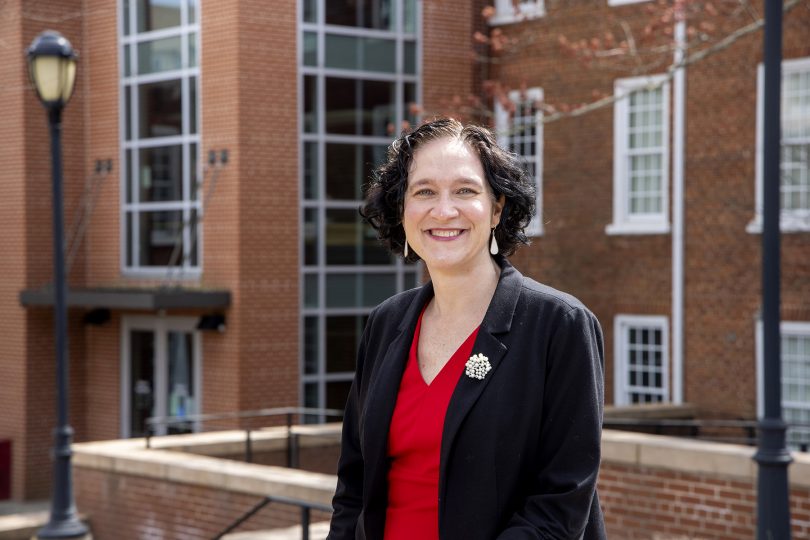Consider Rachel Fusco an evangelist for social work.
From working with people in their homes to encouraging students to get engaged in the field, her area of study requires a hands-on approach.
“Social work has been doing things for a long time that I think other disciplines have come to embrace only recently,” Fusco said.
She also knows information sharing and collaboration is key. That’s why Fusco, the UGA Athletic Association Professor in Health and Well-Being for the School of Social Work, is excited to continue to explore collaborative projects with other colleges and schools across campus. One such venture is an ongoing joint research and intervention program she is working on with Grace Bagwell Adams from the College of Public Health.
Fusco, whose research interests center around child welfare, family mental health and intimate partner violence, is seeking to better understand how maternal substance use problems are connected to issues of child maltreatment. Often, these problems can result in the mother facing punishment and the children being separated from their parents and placed in the child welfare system.
She’s also hoping the program can identify viable solutions that can break this painful cycle for mothers dealing with addiction.
“I really wanted to think more about prevention or finding ways to ameliorate those issues,” she said. “We’re talking about women who have substance use problems who are parenting. These women see their children go into the child welfare system at a really high rate and often have them removed from their care and they go into foster care. In many cases, the children are never reunified with their mother.”
The program aims to build a stronger system of social support for its participants, while also equipping them with the health knowledge they need to better care for themselves and their families. It would allow for pregnant women to meet once a week in a trusted, safe environment where they could have candid conversations about their pregnancies, their lives and their day-to-day battles with addiction.
Additionally, basic health services, such as blood pressure checks and monitoring the growth of the baby, would be provided.
Such a system of support is crucial because, as Fusco pointed out, many individuals who combat addiction often have burned out their existing networks of support. Relatives might be exhausted, while old friends could offer unwanted opportunities for relapse. Bringing these expectant mothers together for regular meetings surrounds them with others who can relate to their common challenges.
While the program has been halted due to safety and health concerns surrounding the COVID-19 pandemic, she said she’s looking forward to being able to start the project up again. And, by incorporating a public health component to the project, it’s just one example of how Fusco hopes to mesh her area of expertise with colleagues from different academic backgrounds.
“I’d definitely like to spend a part of the rest of my research career trying to think about the ways we can provide those supports up front for new parents,” she said. “I don’t think these efforts have to be expensive, and they don’t have to be time consuming. Women just want to know there are people out there who understand them, and that there are people out there who they can call when they are stressed out.”








